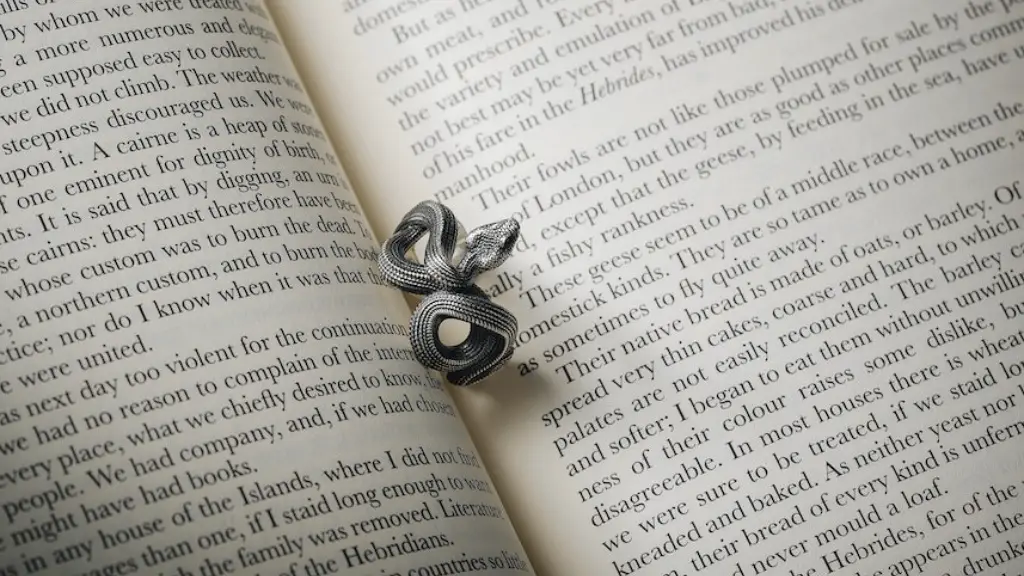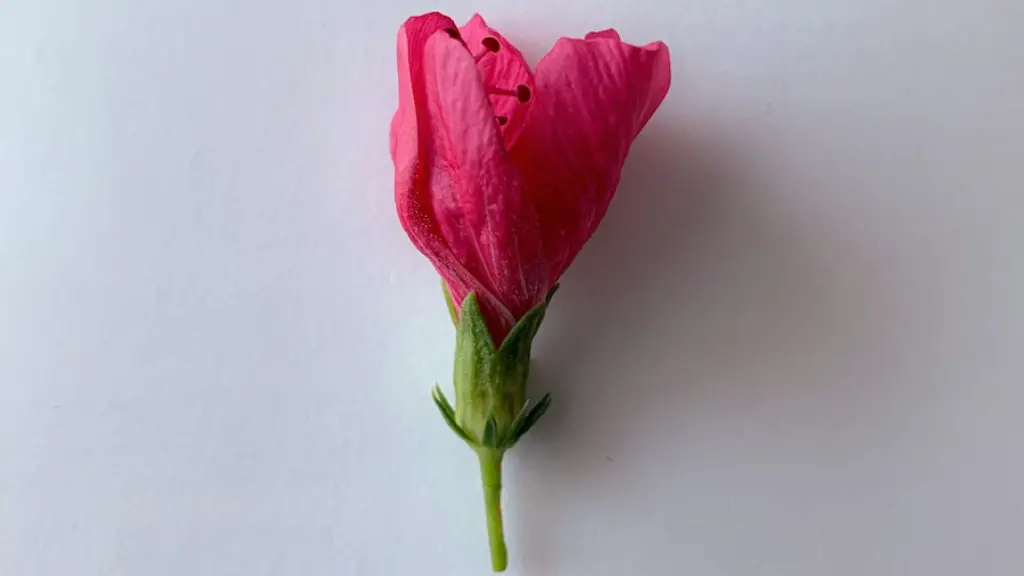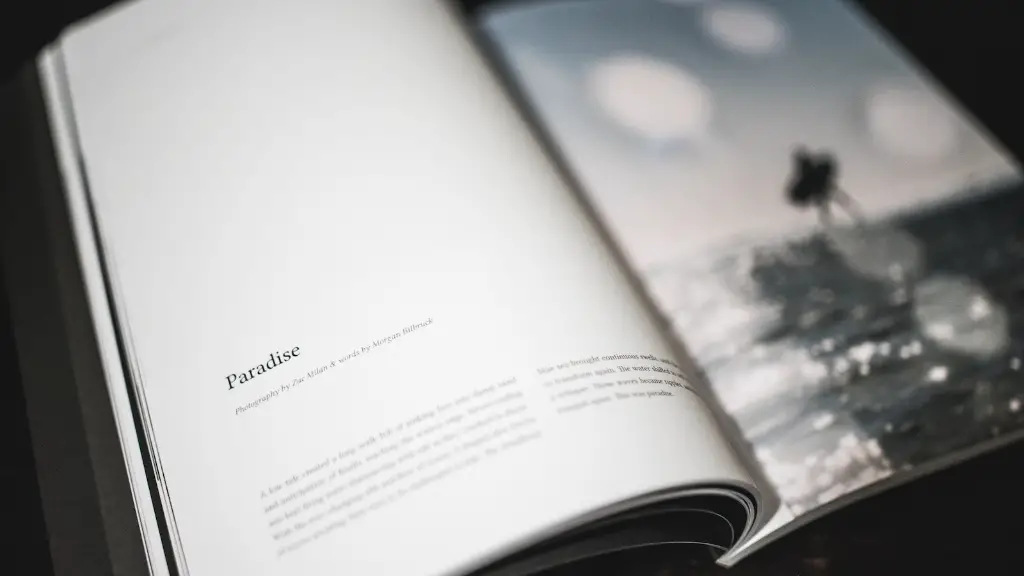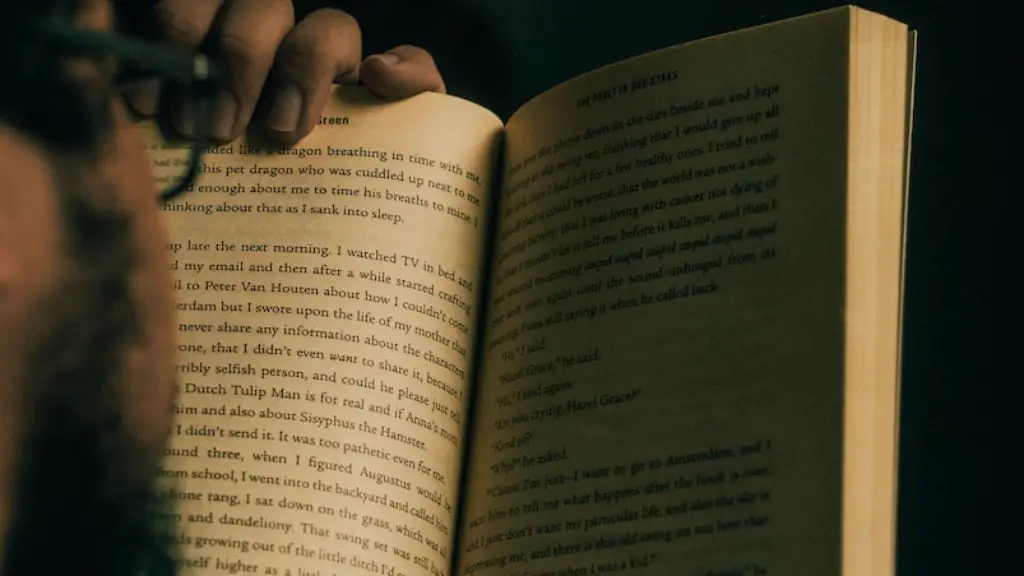Good poetry is more than well-crafted words arranged into a rhythmic pattern. In its ideal form, the art of poetry is a sublime way to express the profoundest of emotions, from the joyous to the pained. Beyond merely making the reader feel something, great poetry has the ability to convey its message through the senses, allowing readers to become fully immersed in the written form.
With an estimated 3,000 years of history behind it, poetry has much to offer today’s poets. But that is not to say that all poetry must conform to the minimalist aesthetic of the ancient poets. Instead, modern poets are free to break free of the traditional forms and explore their own unique genres. In doing so, they can create works of art which captivate and inspire.
For those wanting to learn how to create poetry, nothing beats practice. Writers should study the work of the greats, such as T.S. Eliot and W.H. Auden, and then use their knowledge to create something of their own. It is also essential to read a variety of poems, both old and new, as this not only helps a budding writer to understand the craft but also to form their own poetic sensibilities.
Likewise, readers should take the time to understand the different elements of poetry and how meanings are conveyed within texts. From the specific choice of words to the rhythmic patterns of the poem, the subtle nuances of language can have a profound effect on the reader. As with writing, there is no substitute for practice in understanding poetry. The more time one puts into reading, the more one will be able to appreciate and comprehend the greater techniques of poetry.
Finally, it is important to remember that poetry, like any other art form, is a subjective experience and can be interpreted differently by different people. Much of its beauty lies in the fact that poets and readers can come away with unique interpretations of the same poem. In other words, a great poem is something which can evoke the same emotion in two different people in two different places.
The Philosophy of Poetry
The best poetry often attempts to convey something much deeper. Philosophizing in the form of poetry has been a tradition since long before the time of Homer, and often a well-crafted lyric is the perfect platform for exploring higher-level ideas. Philosophers in particular have gravitated toward the poetic medium for its more creative approach than more traditional writing formats.
While the task of writing thoughtful poetry may seem daunting to some, the ability to incorporate philosophical elements into poetry has much to offer. Not only does it allow the author to further explore their own developing beliefs, but it can also help readers to better understand the complexities of philosophy and clarify their own perspectives.
It is important to remember, however, that philosophizing in poetry is more difficult than it first appears. The challenge for writers is to express themselves in highly efficient language, while the task of the reader is to fully understand a poem’s implications. Even those with a robust background in philosophy can find themselves struggling to unpack the abstract meanings of a well-crafted lyric.
At its best, philosophical poetry allows us to explore the deeper nuances of our beliefs without being too literal. It is an inspiring form of expression that encourages us to reflect on life’s greatest questions. As such, it remains an important tool for anyone wishing to explore the power of their own thoughts.
Reading Poetry As A Source Of Emotion
The beauty of poetry lies in its ability to tap into the human condition and invoke a range of emotions. Readers can experience a myriad of feelings when they immerse themselves in a poem, from joy and sorrow to anger and fear. It is this emotionally charged quality which makes poetry so universally appealing and powerful.
Poetry is a highly effective way of conveying the complexities of human emotions, as it allows authors to directly channel their own feelings onto the page. Readers can then delve into the text and access a much richer emotional experience than if they simply read a factual article. In a sense, poets can speak directly onto the soul of the reader and make them feel a deep understanding of what is being written.
It is important to remember, however, that not all poetry needs to be dark or brooding. On the contrary, powerful emotions can also be evoked through joyful, light-hearted themes. Whether a poem speaks to the grandness of life or its fragility, the best of them will foster an appreciation of the human experience in all its forms.
Ultimately, poetry stands as a testament to the power of emotions and the ability they have to create and communicate meaning. By openly sharing their innermost feelings through the poetic form, authors allow readers to access these hidden wells of emotion and gain greater insight into their own.
The Power Of Metaphors In Poetry
Metaphors are an essential part of the poetic toolkit, as they allow authors to evoke a greater range of imagery and emotion than many other forms of writing. They are a powerful way of conveying subtle meanings and expanding on ideas, as they allow poets to express complex themes in a much more dynamic way.
In order to write effectively with metaphors, authors must take the time to understand the purpose of their use. A metaphor should not simply be a superficial substitution, as that would not have the desired effect. Rather, a writer must focus on designing metaphors which accurately convey their desired message. This is done by using simple language which both helps to relate the concept and adds subtle nuance to the poem.
Likewise, readers must take the time to analyse metaphors, as their meaning is often not immediately obvious and requires closer inspection. Perhaps the most important thing to take into account is the context in which a metaphor is used. By understanding the implications of a metaphor in a particular setting, the reader will be better equipped to fully comprehend a poem’s greater message.
It is also helpful to consider the literary and figurative elements of a metaphor and how they contribute to the poem’s overall meaning. This is particularly true of imagery-based metaphors, which can be seen as a type of painting composed in words. By studying the individual elements of a metaphor and the feeling they evoke, readers can gain deeper insight into the poet’s intentions.
Unique Use Of Poetic Devices
Poetry is a highly creative field that encourages its practitioners to break with convention and explore new methods of expressing themselves. As such, writers are free to make use of poetic devices which express their work more effectively. Whether through the use of alliteration, metaphor, or another technique, the goal is always to find the most effective way of conveying a message.
For many poets, using poetic devices outside of the traditional forms can provide great creative rewards. By experimenting with their work, writers can create unique works of art with an individual flair. As such, unique poetic devices should not be seen as a threat to the traditional forms, but instead as an inspiring way to explore the craft.
In terms of the reader, understanding the use of poetic devices is essential to gaining deeper insight into a poem. For example, understanding the use of symbols or allegory can help a reader uncover the greater metaphors of a poem. With this knowledge, they can appreciate the piece in a much more sophisticated way.
For poets and readers alike, taking the time to understand and experiment with poetic devices can open up a whole new world of expression. Not only does it help readers to appreciate the work more deeply, but it can also provide more creative outlets for mastering the art of poetry.
Adapting To Different Styles Of Poetry
The beauty of poetry lies in its subtleties, as different forms and styles allow authors to explore the limits of language and expression. It is also these nuances which provide an avenue for readers to discover new forms of expression and gain new insights into their own poetic voice.
At its best, poetry allows the writer to infuse the text with their own personal style. This is done through the use of various elements, such as the choice of words, rhyme scheme, and metre. To create a truly original poem, a writer must take the time to experiment and find the rhythm which best suit their style.
Likewise, readers should also strive to familiarise themselves with the various forms and styles of poetry, as this knowledge will enable them to appreciate the diversity of the craft. From ancient epics to modern lyrics, poetry continues to evolve and embody new forms. The more time that is spent being introduced to these new works, the richer one’s understanding of the poetic form will be.
Ultimately, adapting to different styles of poetry can be an incredibly rewarding experience, as it gives both writers and readers the opportunity to explore the depths of the craft. It is an essential part of mastering the art of poetry, and one which can result in some truly unique works of art.





